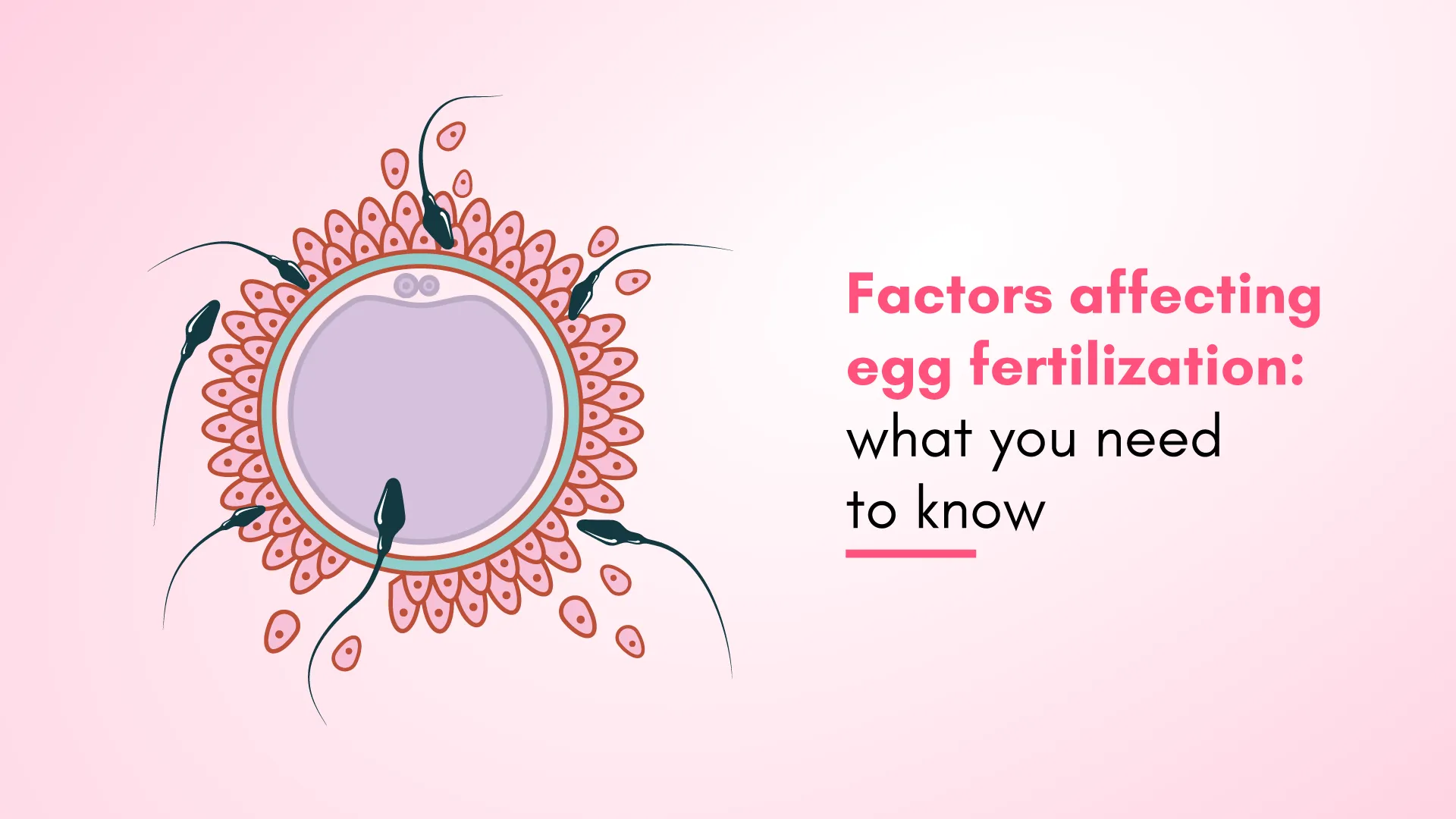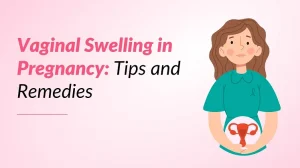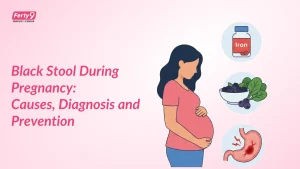Conception, a miracle of nature, often feels just out of reach for many couples. Infertility affects millions worldwide, leaving many wondering about the reasons behind their struggles. What if small factors are influencing your chances? Let’s focus on egg fertilization, a crucial part of the process. Understanding how this works and the elements that affect it can make a big difference. From lifestyle choices to health factors, these details might be the missing pieces in your fertility puzzle. So, join us as we explore the basics of egg fertilization, learn how to improve egg quality naturally after 35, 40, or 45, and discover fertility tips to improve your chances of a successful pregnancy.
What is Egg Fertilization?
Egg fertilization is a process where a sperm cell from a male meets and merges with an egg cell from a female. Think of it as two puzzle pieces coming together to create a new picture. Here’s a quick overview:
- Egg Release: An egg is released from the ovary and travels to the fallopian tube
- Sperm Journey: During intercourse, sperm move through the cervix and uterus to reach the fallopian tube
- Fusion: A sperm merges with the egg, forming a single-cell
- Development: This newly formed cell, called a zygote, then moves to the uterus to implant and develop into an embryo
Biological Factors Influencing Egg Fertilization
Biological factors are the natural elements affecting egg fertilization success.
Age of the Woman
Your age is a key player in your fertility journey. Women are born with a set number of eggs, which decline in quantity and quality over time. By age 35, this decline becomes more noticeable, making it harder for eggs to be fertilized and embryos to implant.
Hormonal Balance
Hormones are the body’s messengers, and they regulate your menstrual cycle and ovulation, which is essential for releasing a healthy egg. Imbalances in hormones like estrogen and progesterone can disrupt ovulation and lower fertilization chances.
Genetic Factors
Abnormalities in your genetic material can affect embryo development and lead to implantation issues or early pregnancy loss. If you have a family history of genetic conditions, consult your healthcare provider to understand their potential impact on your fertility.
Lifestyle Factors
Lifestyle factors are everyday choices that influence your egg fertilization chances.
Suggested Read: Lifestyle Options to support female infertility treatment
Diet and Nutrition
What you eat matters more than you might think. A diet rich in minerals and vitamins supports healthy egg production. For instance, folic acid, found in leafy greens and whole grains, is essential for cell growth and development. Aim for at least 400 micrograms of folic acid daily. Similarly, antioxidants from fruits and vegetables protect eggs from damage. Incorporate a balanced diet and egg-quality supplement with doctor’s advice to give your eggs the best chance at success.
Suggested Read: Top Vitamins for Boosting Fertility
Physical Activity
Exercise benefits your entire body, including your reproductive system. Maintaining a healthy weight through regular physical activity can support hormone balance and improve your chances of ovulation. Regularly engage in a moderate-intensity exercise with a minimum of 150 minutes per week, such as walking or yoga. However, be cautious about overdoing it—extreme exercise can disrupt your menstrual cycle. Aim for moderately enjoyable activities like walking or yoga to stay fit and support fertility.
Stress and Mental Health
High stress can disrupt your hormonal balance and menstrual cycle, impacting fertility. Managing stress through methods like meditation, hobbies, or counseling can support reproductive health and enhance your chances of conception.
Suggested Read: The Impact of Stress on Fertility
Medical Conditions and Treatments
Do you know that certain medical conditions and treatments can greatly influence your egg fertilization journey? Let’s explore these factors:
Polycystic Ovary Syndrome (PCOS)
Polycystic Ovary Syndrome (PCOS) is a common condition where cysts form on the ovaries, disrupting hormonal balance and impacting egg quality, making fertilization more challenging.
Endometriosis
The Endometriosis is a condition where tissue similar to the uterus lining grows outside it, causing pain and impacting egg quality.
Thyroid Disorders
Thyroid disorders, like hypothyroidism or hyperthyroidism, can affect reproductive health by disrupting metabolism and hormonal balance.
Remember, with the right treatment and support, many overcome these challenges and achieve their fertility goals.
Suggested Read: Best ways to overcome infertility due to Thyroid
Environmental Factors
The environment you’re exposed to can also impact fertility. Factors like pollution, chemicals, and toxins can negatively affect your reproductive health. To minimize these risks, try to reduce exposure to harmful substances. Opt for natural or organic products and be mindful of your surroundings to support your overall health and fertility.
With these natural and medical influences covered, it’s also important to explore how advanced technologies can assist in overcoming challenges related to egg fertilization.
Assisted Reproductive Technologies (ART)
Assisted reproductive technologies (ART) offer innovative solutions to help bring your dreams of parenthood to life.
In Vitro Fertilization (IVF)
IVF allows an egg to be fertilized in a laboratory outside the body before being implanted in the uterus. This method can overcome barriers to natural conception, offering a hopeful solution for many couples facing infertility.
Intracytoplasmic Sperm Injection (ICSI)
ICSI enhances IVF by injecting a single sperm directly into an egg, which is ideal for cases with sperm quality issues. This technique boosts fertilization chances when standard IVF isn’t enough.
Preimplantation Genetic Testing (PGT)
PGT screens embryos for genetic issues before implantation, increasing the likelihood of a healthy pregnancy. It’s a valuable option for couples at risk of genetic disorders, ensuring the best possible start for your baby.
Tips for Enhancing Egg Fertilization
Here are some practical tips on how to improve egg quality after 40 or 50 and optimize your reproductive health to make every effort count:
- Maintain a Healthy Weight: Keep your weight balanced to support hormone levels and ovulation
- Avoid Smoking and Excessive Alcohol: Quit smoking and limit alcohol to boost egg quality and fertility
- Limit Caffeine Intake: Reduce caffeine to no more than 200 mg per day to improve reproductive health
- Ensure Adequate Sleep: Make sure to get quality sleep of 7-9 hours every night to support hormone regulation
- Stay Hydrated: Drink enough water every day to keep your body and reproductive system in top shape
Conclusion
Understanding the factors that affect fertilisation can help you take steps to improve your egg quality and chances of conception. By addressing these factors and seeking appropriate treatments or support, such as those offered at Ferty9 Fertility Centre, you can enhance your fertility and work towards achieving your family-building goals.





























